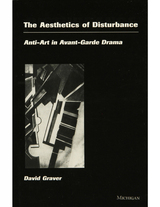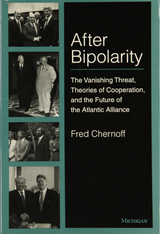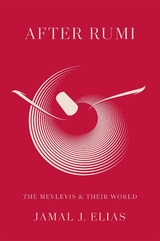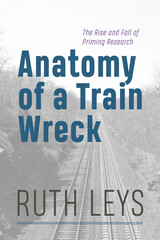
In 2012, a team of Belgian scientists reported that they had been unable to replicate a canonical experiment in the field of psychology known as “priming.” The original experiment, performed by John Bargh in the nineties, had purported to show that words connoting old age unconsciously influenced—or primed—research subjects, causing them to walk more slowly. When subsequent researchers could not replicate these results, Nobel-winning psychologist Daniel Kahneman warned of a “train wreck looming” if Bargh and his colleagues could not address doubts about their work. Since then, the inability to replicate other well-known priming experiments has helped precipitate an ongoing debate over what has gone wrong in psychology, raising fundamental questions about the soundness of research practices in the field.
Anatomy of a Train Wreck offers the first detailed history of priming research from its origins in the early 1980s to its recent collapse. Ruth Leys places priming experiments in the context of contemporaneous debates over not only the nature of automaticity but also the very foundations of social psychology. While these latest discussions about priming have largely focused on methodology—including sloppy experimental practices, inadequate statistical methods, and publication bias—Leys offers a genealogy of the theoretical expectations and scientific paradigms that have guided and motivated priming research itself. Examining scientists’ intellectual strategies, their responses to criticism, and their assumptions about the nature of subjectivity, Anatomy of a Train Wreck raises crucial questions about the evidence surrounding unconscious influence and probes the larger stakes of the replication crisis: psychology’s status as a science.
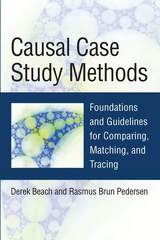
Causal Case Study Methods begins with the cohesive, logical foundations for small-n comparative methods, congruence methods, and process tracing, then delineate the distinctive types of causal relationships for which each method is appropriate. Next, the authors provide practical instruction for deploying each of the methods individually and in combination. They walk the researcher through each stage of the research process, starting with issues of concept formation and the formulation of causal claims in ways that are compatible with case-based research. They then develop guidelines for using Bayesian logic as a set of practical questions for translating empirical data into evidence that may or may not confirm causal inferences.
Widely acclaimed instructors, the authors draw upon their extensive experience at the graduate level in university classrooms, summer and winter school courses, and professional workshops, around the globe.
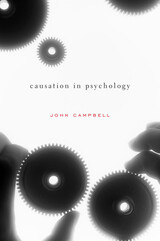
A renowned philosopher argues that singular causation in the mind is not grounded in general patterns of causation, a claim on behalf of human distinctiveness, which has implications for the future of social robots.
A blab droid is a robot with a body shaped like a pizza box, a pair of treads, and a smiley face. Guided by an onboard video camera, it roams hotel lobbies and conference centers, asking questions in the voice of a seven-year-old. “Can you help me?” “What is the worst thing you’ve ever done?” “Who in the world do you love most?” People pour their hearts out in response.
This droid prompts the question of what we can hope from social robots. Might they provide humanlike friendship? Philosopher John Campbell doesn’t think so. He argues that, while a social robot can remember the details of a person’s history better than some spouses can, it cannot empathize with the human mind, because it lacks the faculty for thinking in terms of singular causation.
Causation in Psychology makes the case that singular causation is essential and unique to the human species. From the point of view of practical action, knowledge of what generally causes what is often all one needs. But humans are capable of more. We have a capacity to imagine singular causation. Unlike robots and nonhuman animals, we don’t have to rely on axioms about pain to know how ongoing suffering is affecting someone’s ability to make decisions, for example, and this knowledge is not a derivative of general rules. The capacity to imagine singular causation, Campbell contends, is a core element of human freedom and of the ability to empathize with human thoughts and feelings.

the urbane idiom of a French scholar." -- J. T. Fraser, founder,
International Society for the Study of Time
"This is the book for those of us who couldn't wade completely through
Hawking's A Brief History of Time and now have it collecting dust
on our bookshelves. Well written, thought-provoking, and, most important,
understandable." -- Michael Epstein, analytical spectroscopist/chemist,
National Institute of Standards and Technology
What is time? Does it really pass? These and other fascinating questions
about the nature of time animate a continuing philosophical and scientific
debate. In this popular French book, now available for the first time
in English; my Lestienne moves to make the bewildering concepts
of time accessible--and interesting. He uses Galileo, Newton, Einstein,
and others to demonstrate how the concepts of causality and entropy became
so pervasive that they eventually were substituted for time itself. He
also shows how recent advances in astronomy, particle physics, developmental
life sciences, and the neurosciences are helping to shape a new philosophical
vision of time.
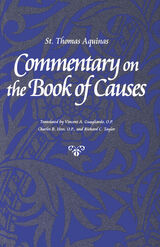

What does it mean for scientists to truly understand, rather than to merely describe, how the world works? Michael Strevens proposes a novel theory of scientific explanation and understanding that overhauls and augments the familiar causal approach to explanation. What is replaced is the test for explanatorily relevant causal information: Strevens discards the usual criterion of counterfactual dependence in favor of a criterion that turns on a process of progressive abstraction away from a fully detailed, physical causal story. The augmentations include the introduction of a new, non-causal explanatory relevance relation—entanglement—and an independent theory of the role of black-boxing and functional specification in explanation.
The abstraction-centered notion of difference-making leads to a rich causal treatment of many aspects of explanation that have been either ignored or handled inadequately by earlier causal approaches, including the explanation of laws and other regularities, with particular attention to the explanation of physically contingent high-level laws, idealization in explanation, and probabilistic explanation in deterministic systems, as in statistical physics, evolutionary biology, and medicine.
The result is an account of explanation that has especially significant consequences for the higher-level sciences: biology, psychology, economics, and other social sciences.
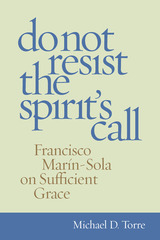
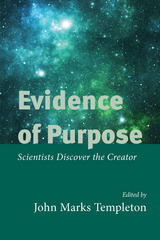

Kant on Causality, Freedom, and Objectivity was first published in 1984. Minnesota Archive Editions uses digital technology to make long-unavailable books once again accessible, and are published unaltered from the original University of Minnesota Press editions.
Kant's account of causation is central to his views on objective truth and freedom. The Second Analogy of Experience, in the Critique of Pure Reason,where he provides his defense of the causal principle, has long been the focus of intense philosophical research. In the past twenty years, there have been two major periods of interest in Kantian themes, The first coincided with a general turn away from positivism by analytic philosophers, and resulted in a fruitful interchange between Kant scholars and those who applied Kantian ideas to contemporary philosophical problems. In recent years, a new surge of interest in Kant's work occurred along with the developing controversy over realism generated by the work of Dummett and Putnam. Scholars now appreciate the extent to which the Kantian causal principle is illuminated by the philosopher's argument that his transcendental idealism supports an empirical realism. And in turn, Kant's views on objectivity, causation, and freedom are especially relevant to the philosophical concerns raised by the new debate over realism.
The eight papers in this book are drawn from two conferences that honored Lewis White Beck, an influential Kant scholar. Together with the introductory essay by the editors, they show the continuing relevance of Kant's analysis for the present-day philosophy of causation.
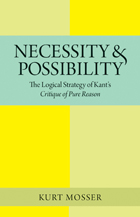
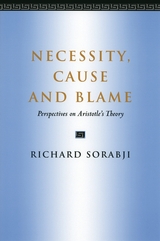
“Necessity, Cause and Blame would be counted by all as one of Sorabji’s finest. The book is essential for philosophers—both specialists on the Greeks and modern thinkers about free will—and also compelling for non-specialists.”—Martha Nussbaum
“Original and important . . . The book relates Aristotle’s discussions to both the contemporary debates on determinism and causation and the ancient ones. It is especially detailed on Stoic arguments about necessity . . . and on the social and legal background to Aristotle’s thought.”—Choice
“It is difficult to convey the extraordinary richness of this book. . . . A Greekless philosopher could read it with pleasure . . . At the same time, its learning and scholarship are enormous.”—G. E. M. Anscombe, Times Literary Supplement
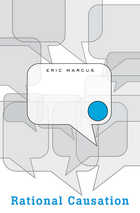
We explain what people think and do by citing their reasons, but how do such explanations work, and what do they tell us about the nature of reality? Contemporary efforts to address these questions are often motivated by the worry that our ordinary conception of rationality contains a kernel of supernaturalism—a ghostly presence that meditates on sensory messages and orchestrates behavior on the basis of its ethereal calculations. In shunning this otherworldly conception, contemporary philosophers have focused on the project of “naturalizing” the mind, viewing it as a kind of machine that converts sensory input and bodily impulse into thought and action. Eric Marcus rejects this choice between physicalism and supernaturalism as false and defends a third way.
He argues that philosophers have failed to take seriously the idea that rational explanations postulate a distinctive sort of causation—rational causation. Rational explanations do not reveal the same sorts of causal connections that explanations in the natural sciences do. Rather, rational causation draws on the theoretical and practical inferential abilities of human beings. Marcus defends this position against a wide array of physicalist arguments that have captivated philosophers of mind for decades. Along the way he provides novel views on, for example, the difference between rational and nonrational animals and the distinction between states and events.

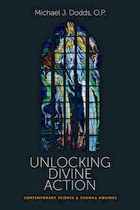
READERS
Browse our collection.
PUBLISHERS
See BiblioVault's publisher services.
STUDENT SERVICES
Files for college accessibility offices.
UChicago Accessibility Resources
home | accessibility | search | about | contact us
BiblioVault ® 2001 - 2025
The University of Chicago Press


